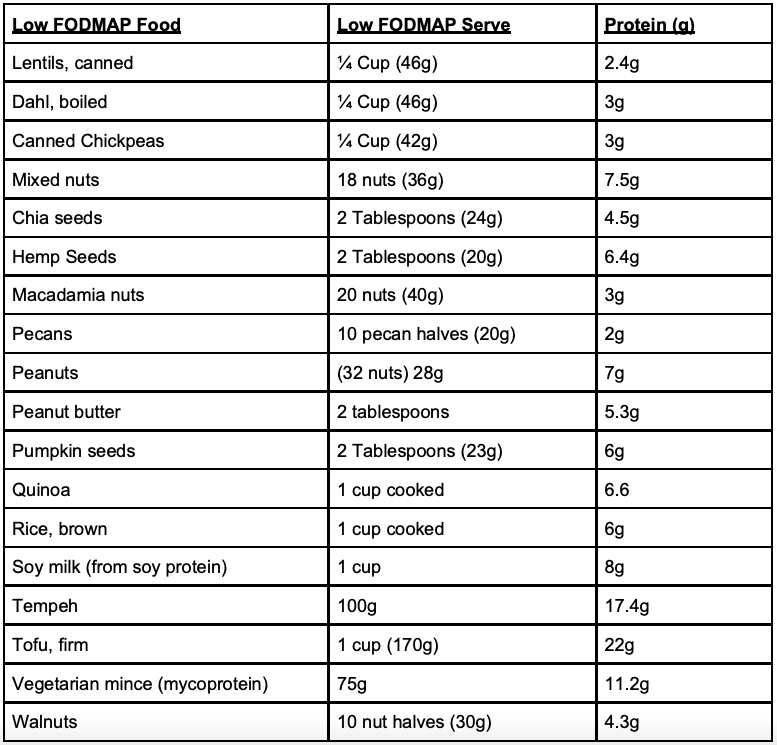Low FODMAP Plant-Based Proteins
From following a plant-based diet myself, I can understand how limited protein options can be. Especially when you combine a vegetarian or vegan diet with eating low FODMAP. It is possible to create balanced, plant-based meals on the low FODMAP diet however, you do have to work a little harder to ensure you’re getting all of the nutrients your body needs.
Protein can be particularly tricky to navigate as a vegetarian or vegan following the low FODMAP diet. Although many plant-based protein sources like legumes, falafel and soft tofu are high FODMAP, there are still many options that remain low FODMAP.
Furthermore, just because a food contains some FODMAPs, doesn’t mean you have to avoid it completely… say what!? An important tip to remember is that it’s the serving size that matters. For example, while ½ cup of chickpeas is high FODMAP, simply halving the serve to ¼ cup means it is low FODMAP. The beauty of this is that you can still enjoy a variety of these plant-based proteins if you reduce the serving size!
So how much protein do we need?
Including a source of protein at every meal will ensure you’re not only meeting your daily protein requirements, but will also help you to feel more satisfied. Plant-based proteins are referred to as ‘incomplete’ proteins, which means they don’t contain all of the essential amino acids (1). In this way, it is important to include a variety of plant-proteins to ensure your diet is complete (1). Those following a vegetarian or vegan diet should include approximately 10% more protein throughout the day compared to meat-eaters, as plant-based protein sources tend to be lower in protein and harder to digest compared to meat (2). As a guide, aim to fill ¼ of your plate with protein at all meal times (3).
Low FODMAP plant-based proteins to opt for:
(Information sourced from: Monash Low FODMAP App)

If you are currently plant-based and looking to start on the low FODMAP diet, we highly recommend working with a dietitian to ensure you get the best results whilst optimising your nutrition. We recommend using the information in this blog post as a guide only and seeking individual dietitian support to assist you with ensuring your diet is adequate.
Contact us today to book in with one of our friendly dietitians.
References
Published: 21st June 2022
Author: Bianca Berton-Scarlet, Monash FODMAP trained Dietitian





This Post Has 0 Comments